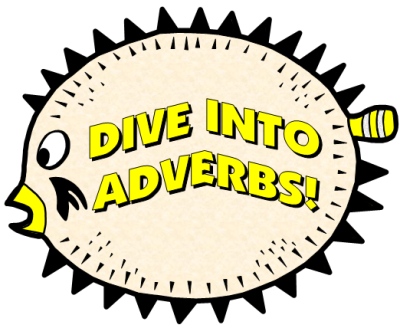 Most adverbs are formed from an adjective:
Most adverbs are formed from an adjective:
easy (-y) + ily
= easily
complete + ly = completely
automatic + ally = automatically
horrible (-le) + ly = horribly
happy(-y) + ily = happily
nice + ly = nicely
romantic + ally = romantically
simple (-le) + ly = simply
Some adverbs have the same form as an adjective:
close, daily, early, fast, hard, high, late, right
Adjective
Susan is fast (tells the way she is) fast is an adjective
Adverb
Susan runs fast (tells the way she runs) fast is an adverb
USE 1
Adverbs can be used to modify verbs.
Examples:
John walked quickly towards the door.
Sally sat silently waiting for somebody else to speak first.
USE 2
Adverbs can be used to modify adjectives.
Examples:
The redwood tree was impressively tall.
The blouse was outrageously expensive.
USE 3
Adverbs can be used to modify other adverbs.
Examples:
She spoke extremely confidently.
The cheetah ran incredibly quickly.
Adverbs of manner
Describe how something happens. Where there are two or more verbs in a sentence, adverb placement affects the meaning. Some commonly used adverbs of manner include:
carefully
correctly
eagerly
easily
fast
loudly
patiently
quickly
quietly
well
Adverbs of purpose
Describe why something happens. Here are some common examples:
accidentally
intentionally
purposely
deliberately
Adverbs of frequency
Describe how often something happens. The following adverbs are commonly used in this way:
always
every
never
often
rarely
seldom
sometimes
usually
Adverbs of time
Describe when something happens. These examples are commonly used:
after
already
during
finally
just
last
later
next
now
recently
soon
then
tomorrow
when
while
yesterday
Advanced adverbs!
half-heartedly
quizically
distractedly
emphatically
impatiently
disinterestedly
eagerly
dismissively
wearily
accusingly
Oblivious to my presence
 Practice
Practice
http://www.englishpage.com/minitutorials/adverbexercise.htm
http://www.englishexercises.org/makeagame/viewgame.asp?id=8547#a
http://www.englishexercises.org/makeagame/viewgame.asp?id=8387
http://www.englishexercises.org/makeagame/viewgame.asp?id=8386










